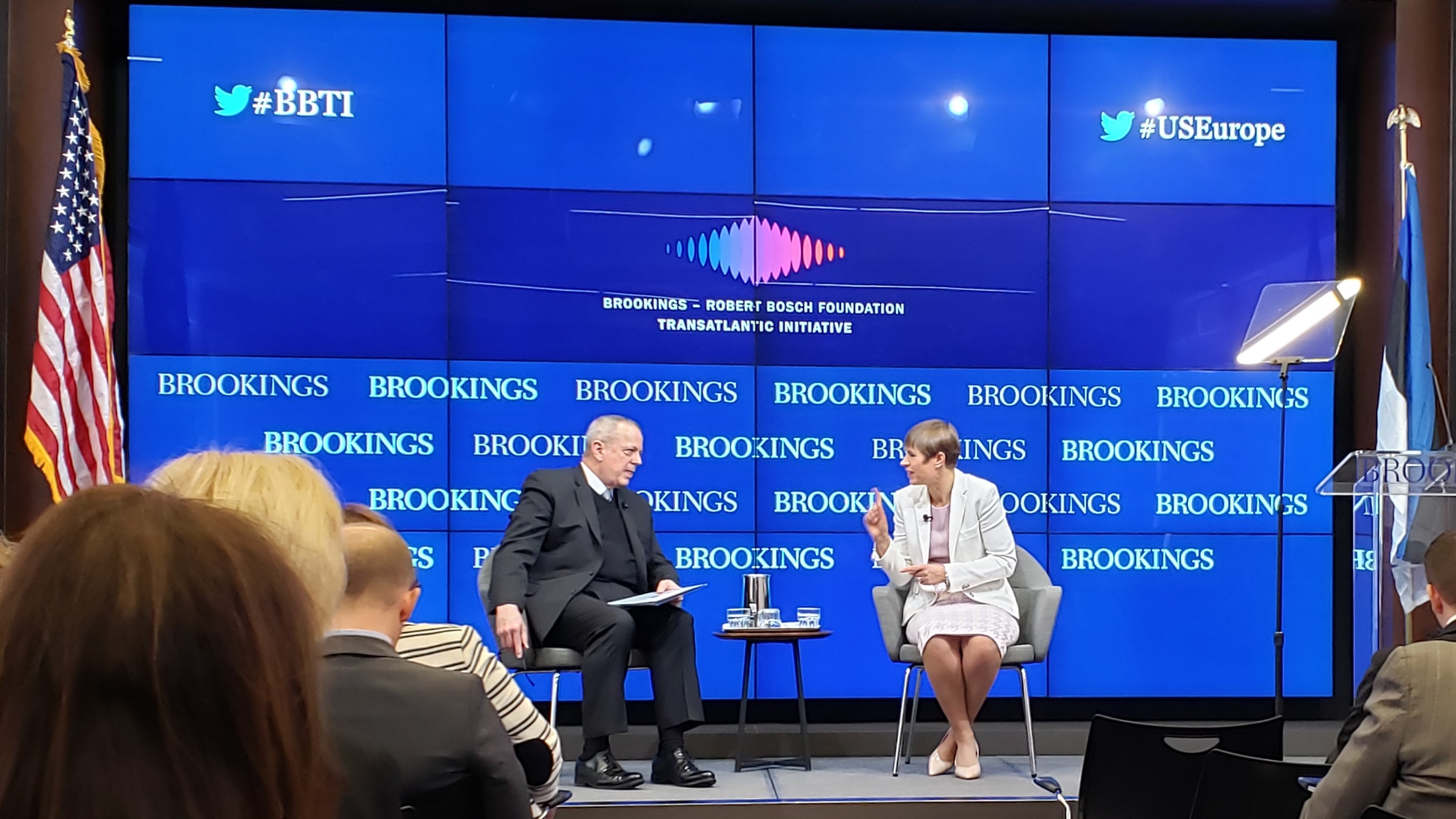
President Kaljulaid and General Allen speaking about Estonian and European security at the Brookings Institution. Photo by Karin Shuey
Estonian President Kersti Kaljulaid travelled to New York and Washington the week of March 11th. Her New York visit included meetings at the U.N. in conjunction with Estonia’s bid for a non-permanent seat on the U.N. Security Council for the 2020-2021 term. Estonia is competing against Romania for the Eastern European Group seat. The election will be held in mid-2019.
In Washington, President Kaljulaid had meetings with Congress, the Administration and think tanks. The Brookings Institution hosted her as part of its International Leaders Forum. She was introduced, and the follow-up discussion was moderated, by Brookings President and retired U.S. Marine Corps General John Allen. General Allen was formerly the commander of NATO and U.S. forces in Afghanistan from 2011 to 2013.
President Kaljulaid gave a powerful 30-minute speech on Estonia in an evolving Europe. She covered a range of security-related topics that included historical review, NATO, the E.U. and its defense market, and technological implications. She highlighted the purpose of NATO’s enhanced forward presence (eFP) in the region “to convey a message: we are all in, that there is no way one can conduct military aggression against just one ally because there are 19 of us in eFP.” She also called for more U.S. involvement in security in the Baltic region for maximum credibility, noting that: the role of the United States will remain critical for European defense, but this is not a one-way street, as I am equally convinced that Europe, whole and free and in alignment with America, will remain critical for the security of the United States.
She drew parallels between the retreat of democracy prior to World War II and the current world order and emphasized the importance of acknowledging the problem. The E.U. is under stress largely due to the failure of E.U. politicians to “create a society where truly, each and every one has a chance.” The resulting backlash against Brussels from the countries that failed to implement social policies to prevent the rise of societal issues contributes to the growing unrest and leaves the union vulnerable to further division.
The President concluded by calling for E.U.-U.S. unity in two other key areas. The first was maintaining and adapting sanctions on Russia as long as it continues to engage in unacceptable behavior. Secondly, she pointed out the importance of “help[ing] the victims of aggression even while we recognize the difficulties of the democratic developments,” citing Ukraine, Georgia and other Eastern partnership nations in need of:
support, solidarity and assistance. But, if necessary, they also need to be reminded that it’s not only Western institutions that want them to concur with democratic values and principles, build rule of law states, allow free media and fight corruption. It’s something they themselves need the most for their nations to live free and to prosper.
The full video is available at www.brookings.edu under events for March 13th.
Karin Shuey
Washington, DC Director
Estonian American National Council
www.estosite.org














